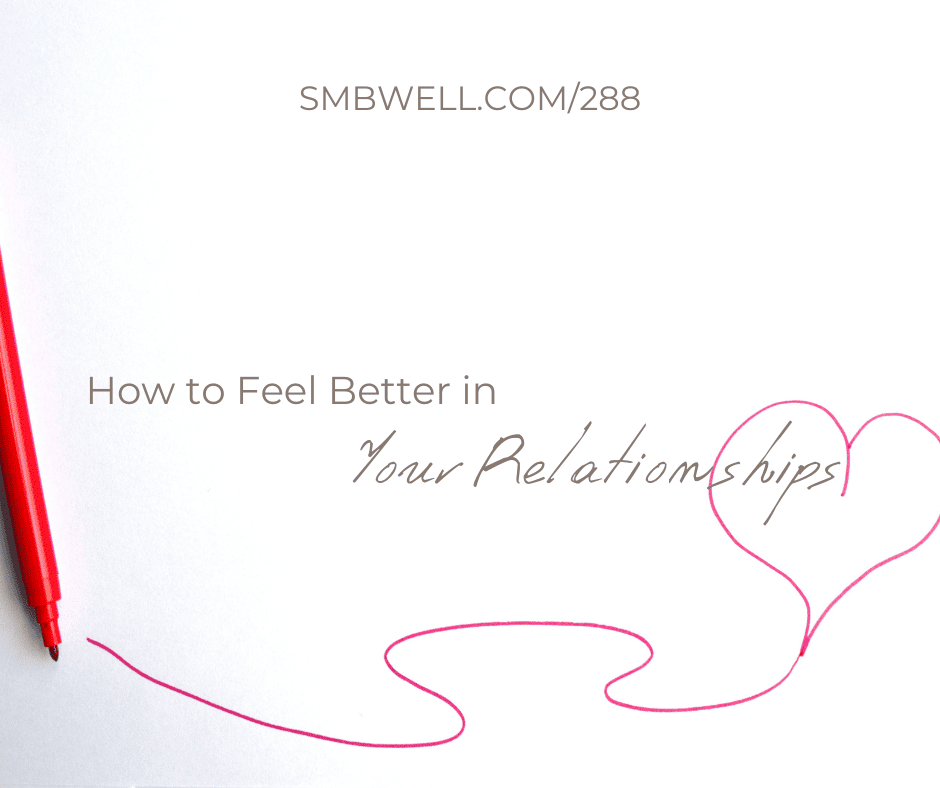Podcast: Play in new window | Download
Subscribe: Apple Podcasts | Spotify | Amazon Music | RSS | More
How to Feel Better in Your Relationships
In the world of relationships, expectations can be a double-edged sword. On one hand, they can provide a sense of structure and guidance. On the other hand, they can lead to disappointment and conflict when reality doesn’t align with our expectations. In this article, we will explore the concept of expectations in relationships and how they can impact our happiness.
It all starts with Expectations:
Expectations are one way I see almost everyone, my past self included, get into relationship trouble. Said another way, almost all relationship problems have to do with expectations.
“So okay Susie, what’s an expectation?” I define an expectation as “a thought or belief about how someone or something will be”. Said another way, an expectation is a thought we have about how something or someone should be.
Where do expectations come from?
Lots of places. And it’s important for you to realize that expectations are not fact, they’re thoughts. Passed down to us by culture, religion, parents, school systems, friends, the media, etc. It’s important that that sinks in. It’s because of the things we’re influenced by the thoughts we have. I’m not saying that our thoughts and expectations are right or wrong, that’s an unhelpful debate to have in our head. What I’m saying is that, we want to open our eyes to look at the expectations we have for our relationships, do we like them and are they working for us?
And since this is such a robust topic, this podcast is a two parter.
Listen in to this episode to learn:
- Expectation hangovers
- Manuals: what they are, who we have them for, which to keep and which to throw out,
- The three ways we have expectations in each and every relationship
- Encouragement to write out your manuals and expectations. See below for possible prompts
Journal Questions for you regarding your expectations of the relationship:
Here are some examples of questions I like clients to ponder:
- How do you feel about yelling, swearing and name calling?
- What are your expectations and/or boundaries?
- What are your expectations about time spent together?
- Think about what you’d like in terms of communication, text and/or phone? How frequently? What are your expectations for when a phone call or text should be returned?
- What are your expectations about sexual intimacy?
- How do you want to handle conflict? Think about what was modeled for you, what you currently do, and what you’d like to do (knowing that all healthy relationships have conflict so avoiding conflict is not a helpful option)
- What do you think a “good” marriage is?
Navigating Expectations in Relationships
Expectations in relationships can either be a source of joy or a recipe for disappointment. By examining our own expectations, communicating them effectively, and creating our own personalized manuals, we can navigate relationships with greater clarity and happiness. Remember, it is essential to differentiate between helpful and unhelpful expectations and to speak up for ourselves. By doing so, we empower ourselves to create the relationships we truly desire. So, take a moment to reflect on your own expectations and start the journey towards a more fulfilling and harmonious relationship today.
Find support here:
⭐️Find the NEW LIFE AUDIT HERE
⭐️Listen to the Manuals: Letting Other People Control How We Feel here
⭐️See if the Love Your Life School is open for enrollment here
⭐️Did you love this episode? Make sure you’ve listened to all the foundational episodes of the Love Your Life Show. Get the free Podcast Roadmap here
⭐️Do you get my weekly Wednesday email? I’m starting a new section: WHAT WARRIORS ARE READING. Come join the fun!
⭐️Are we friends on Instagram? Let’s catch up!
⭐️I’ve been sharing videos of my life in Australia on Facebook – I’d love to be friends with you there too!
⭐️Grab some of my favorite books and products here
⭐️For the price of a coffee, Support Susie and the Love Your Life Show
⭐️Have a child between the ages of 9-25? Learn the basics to support your changing child here





